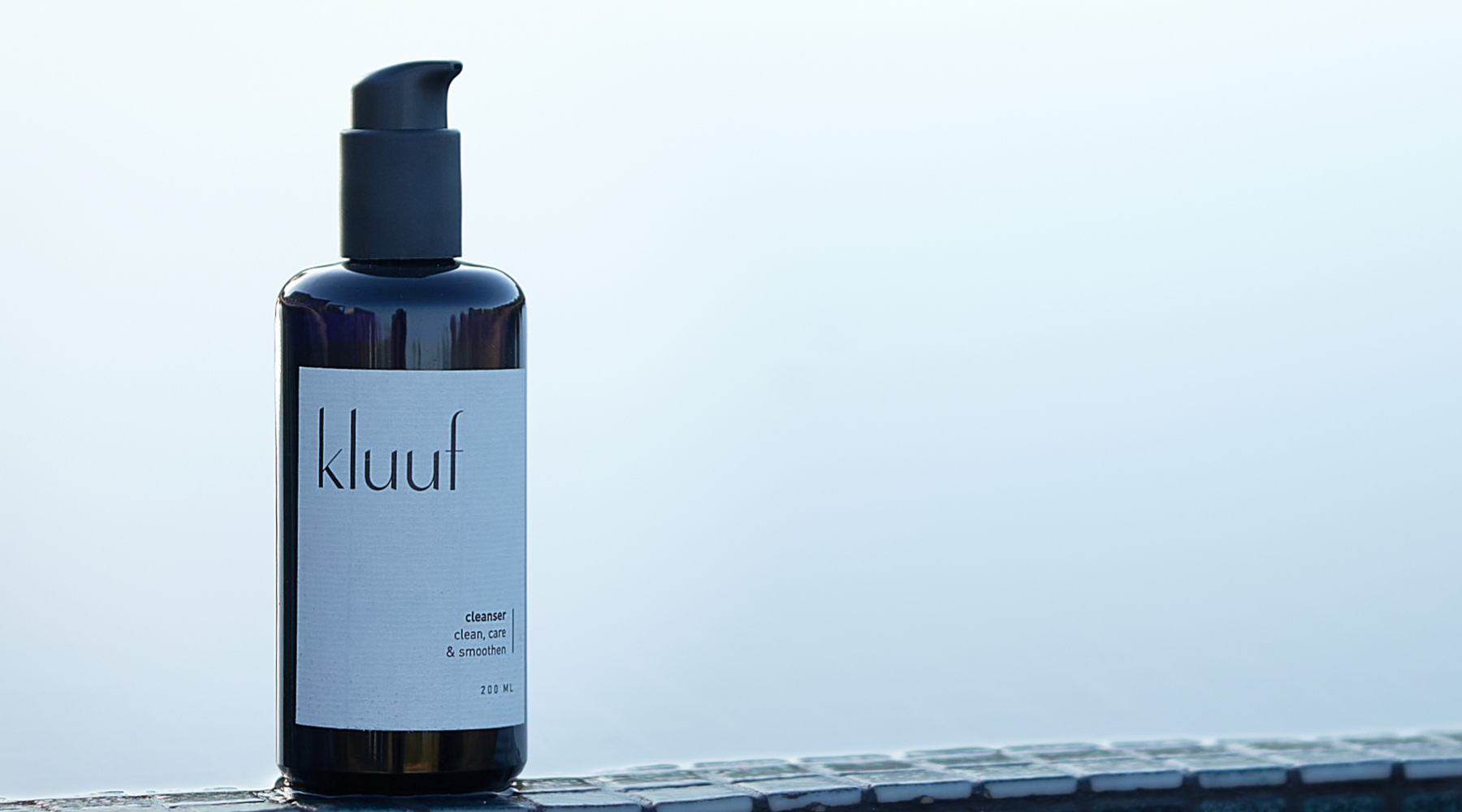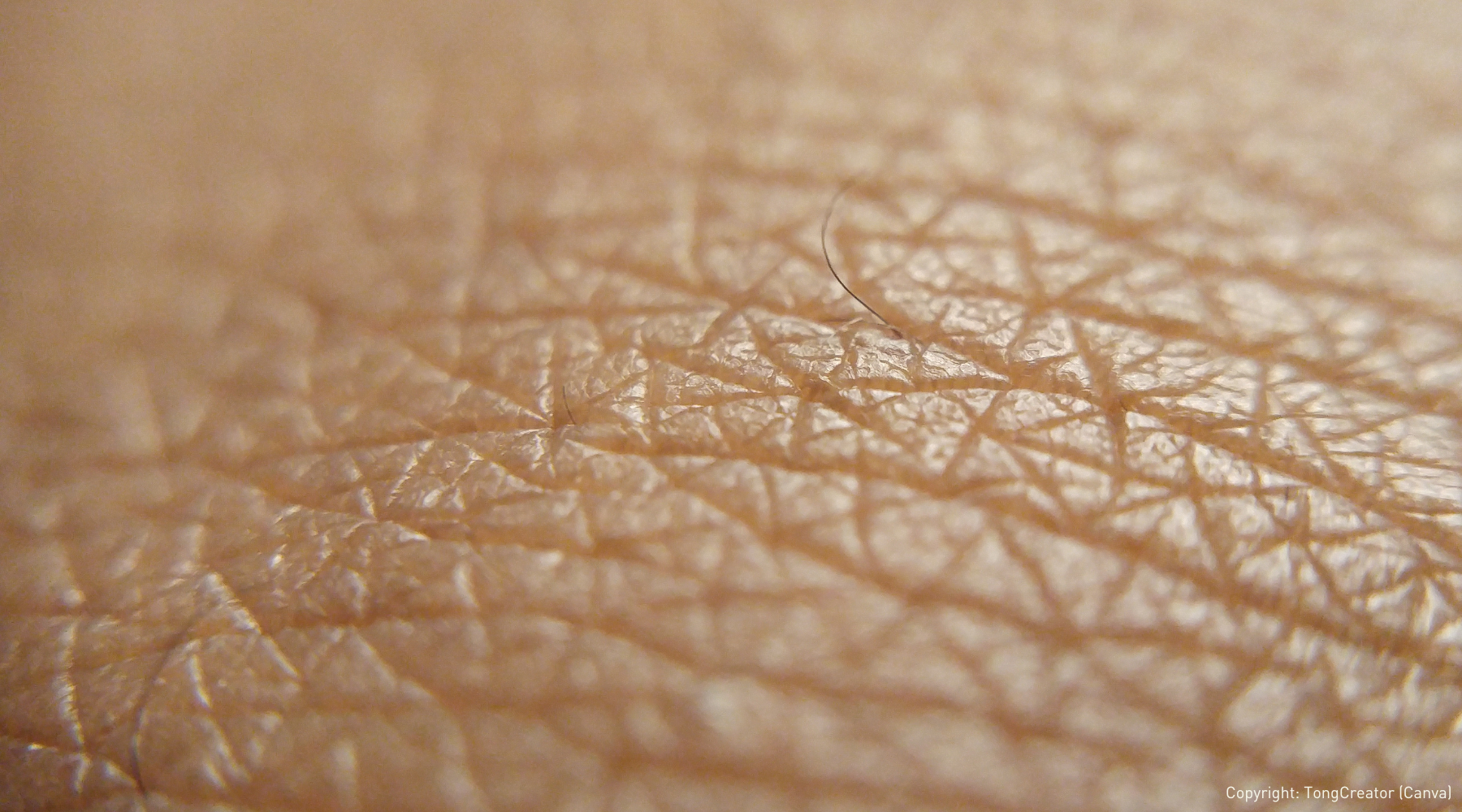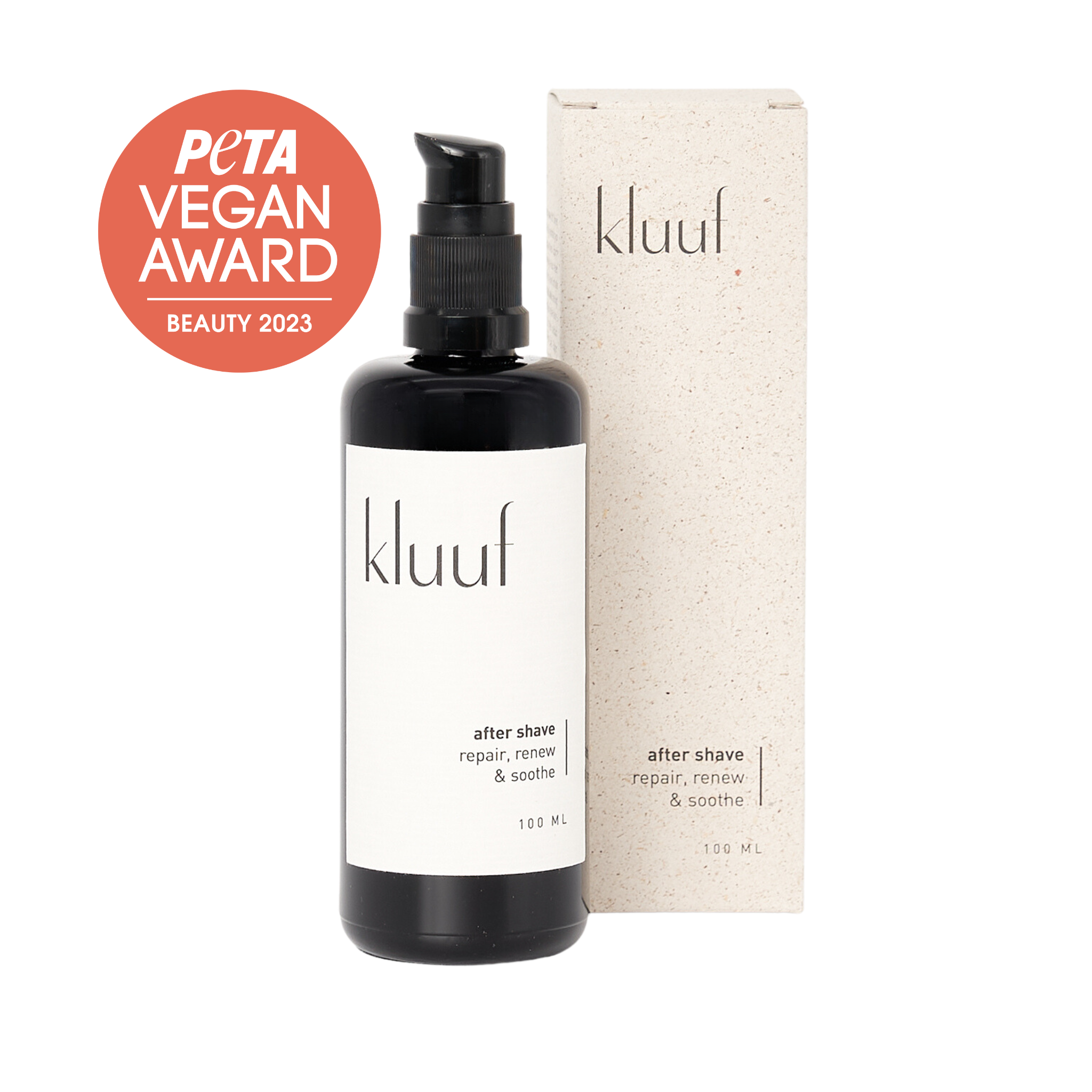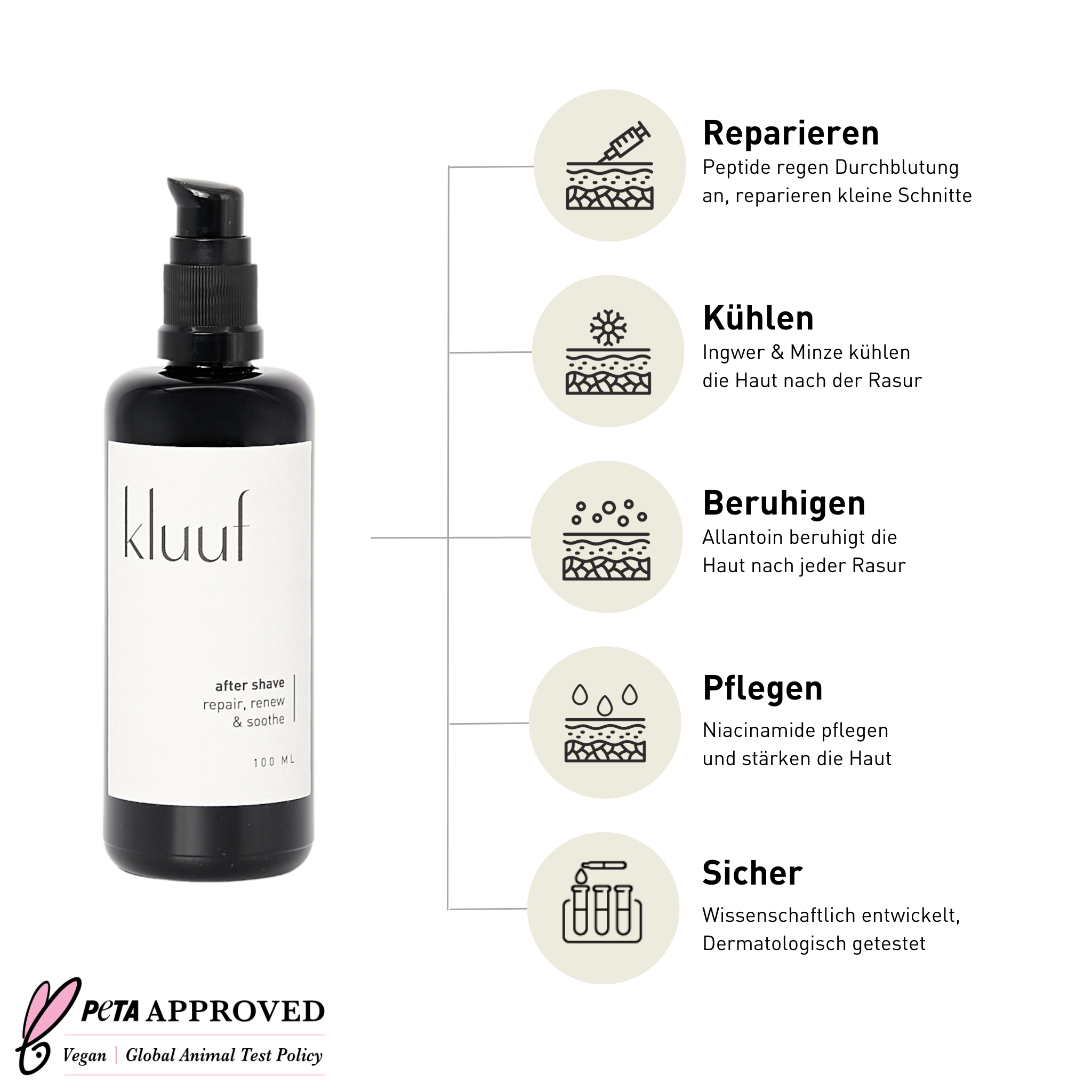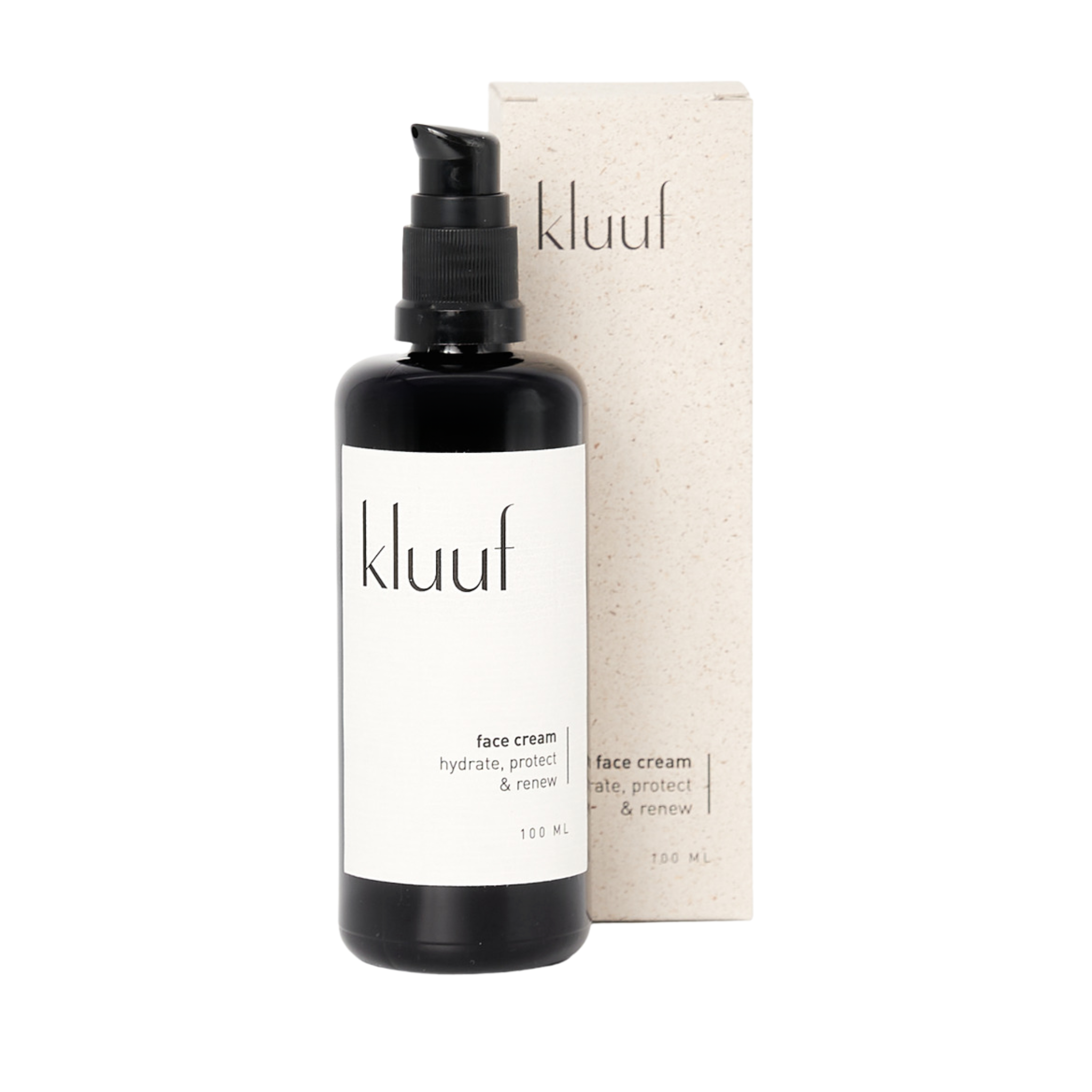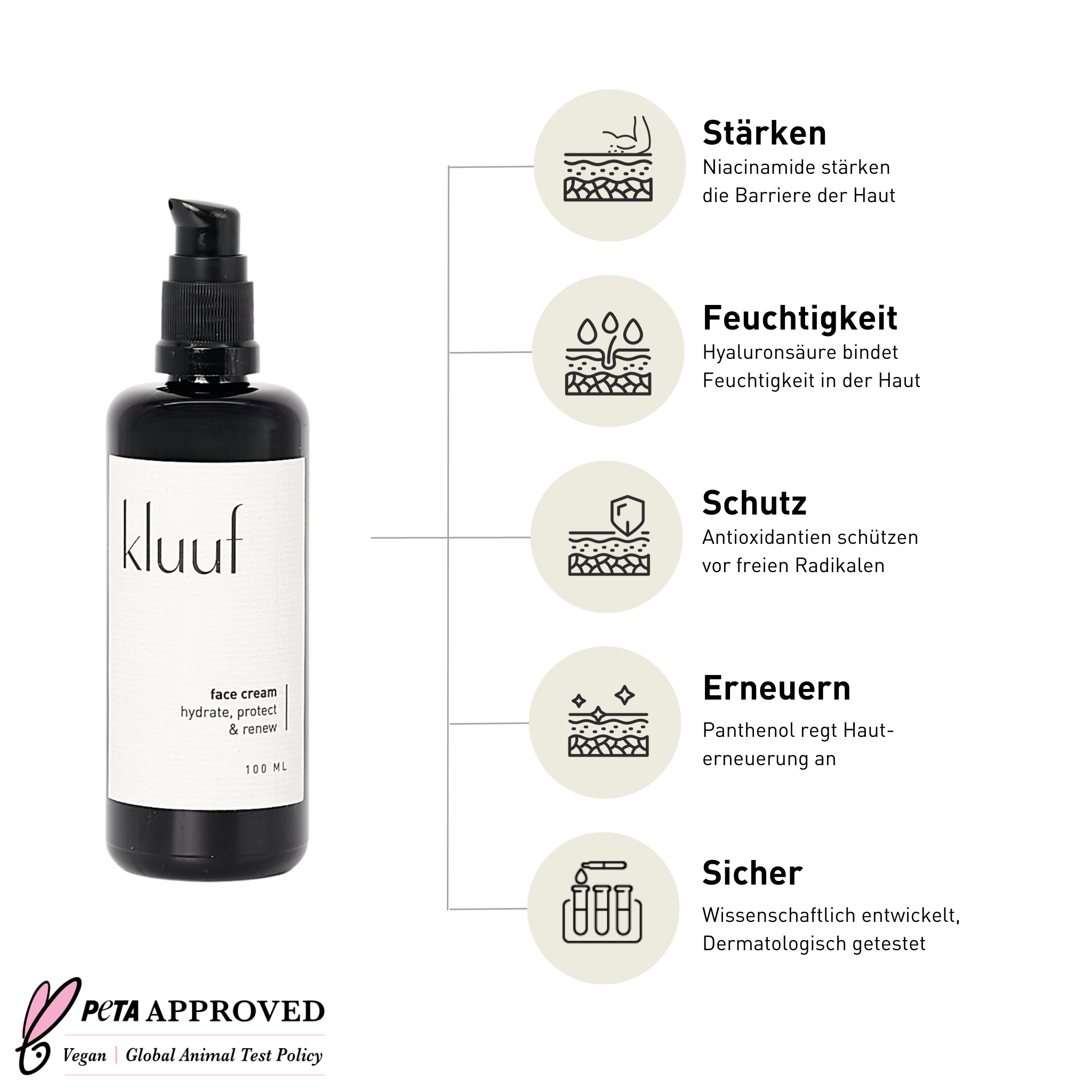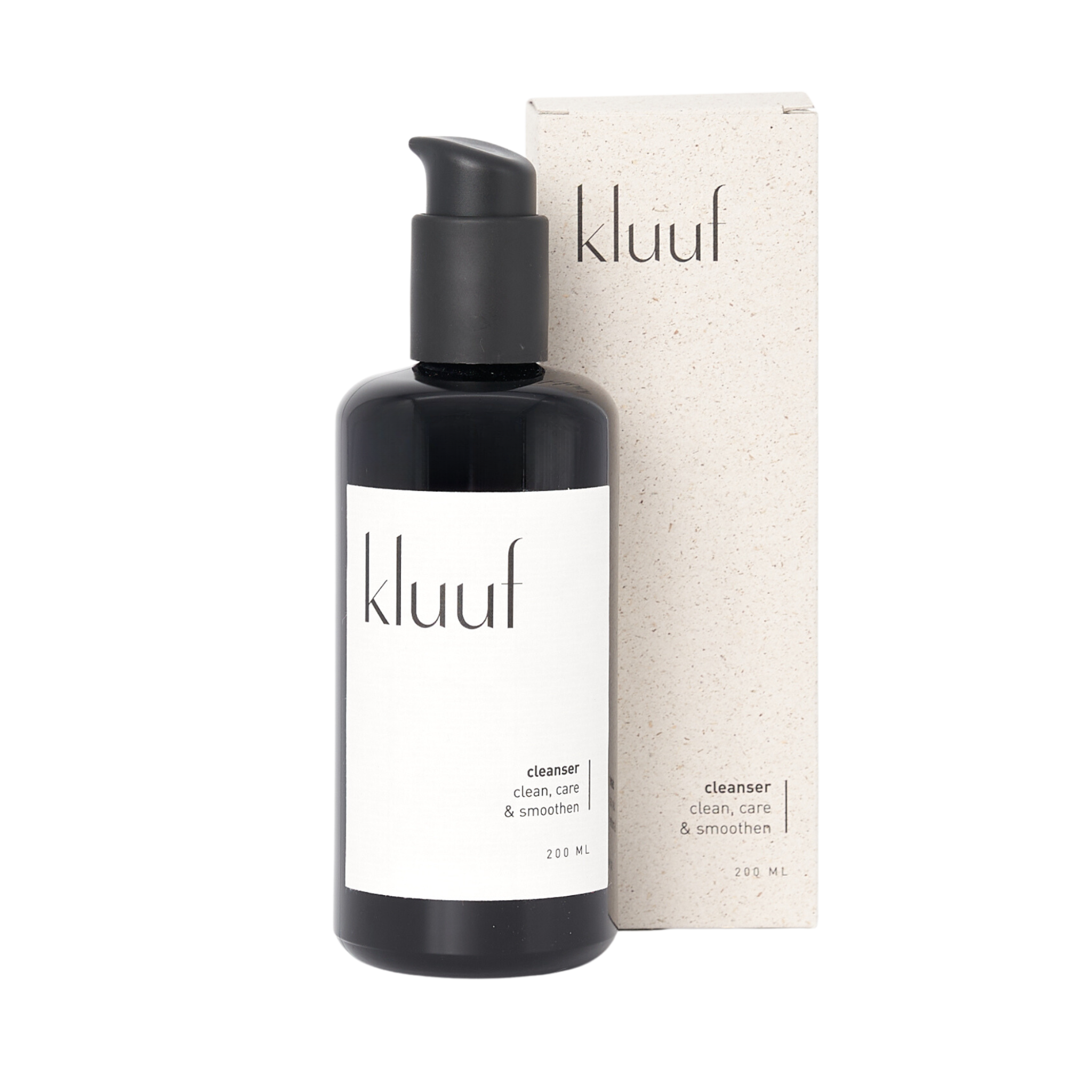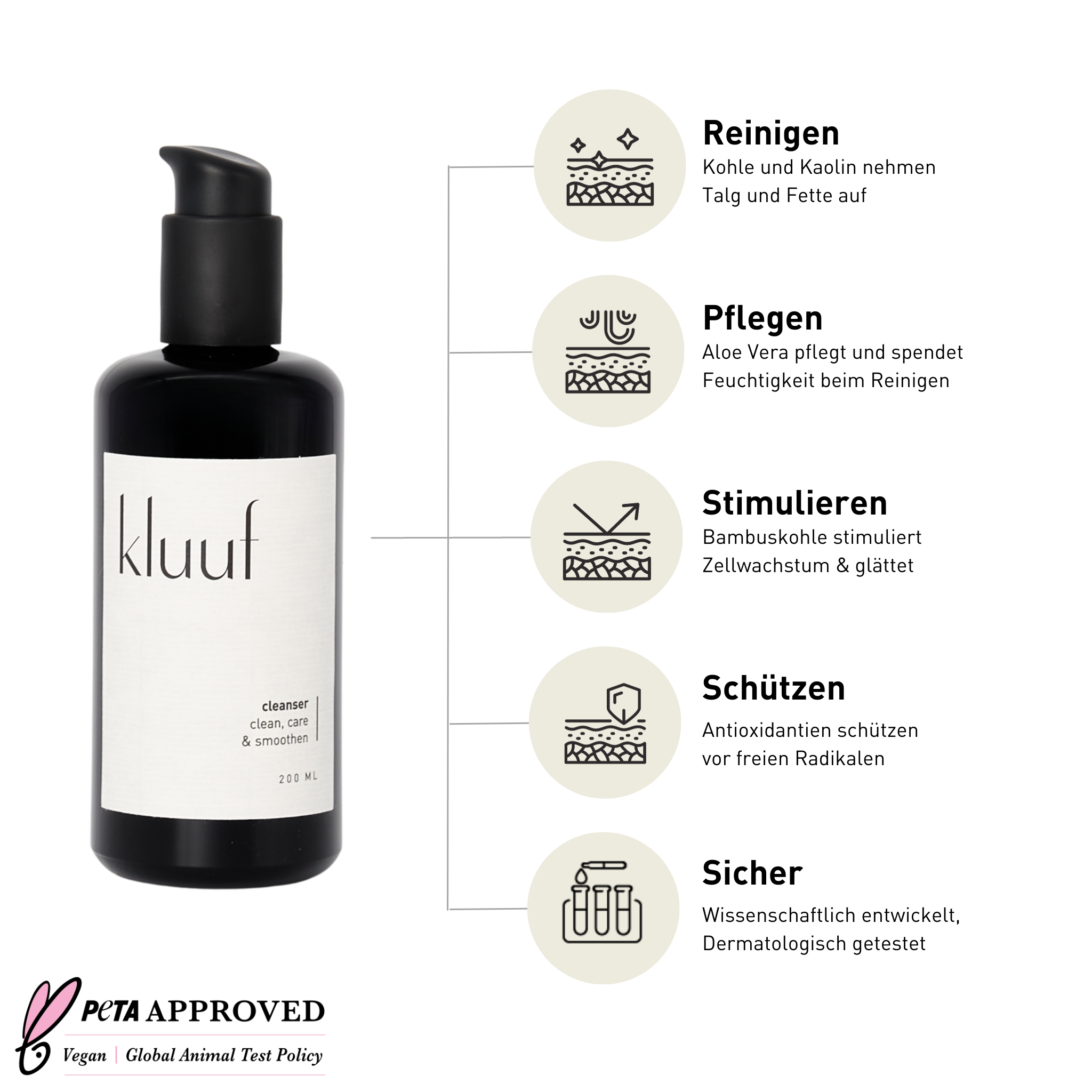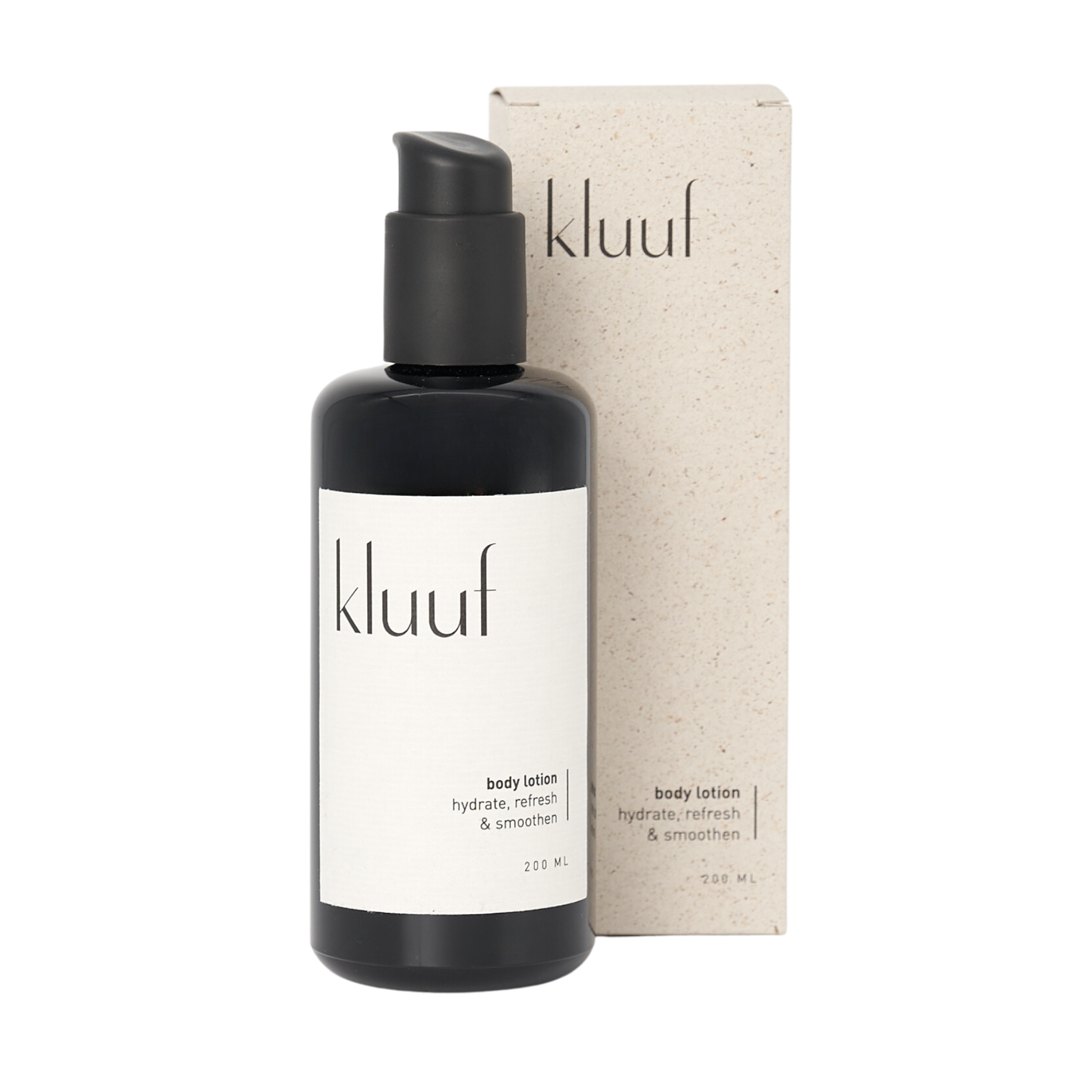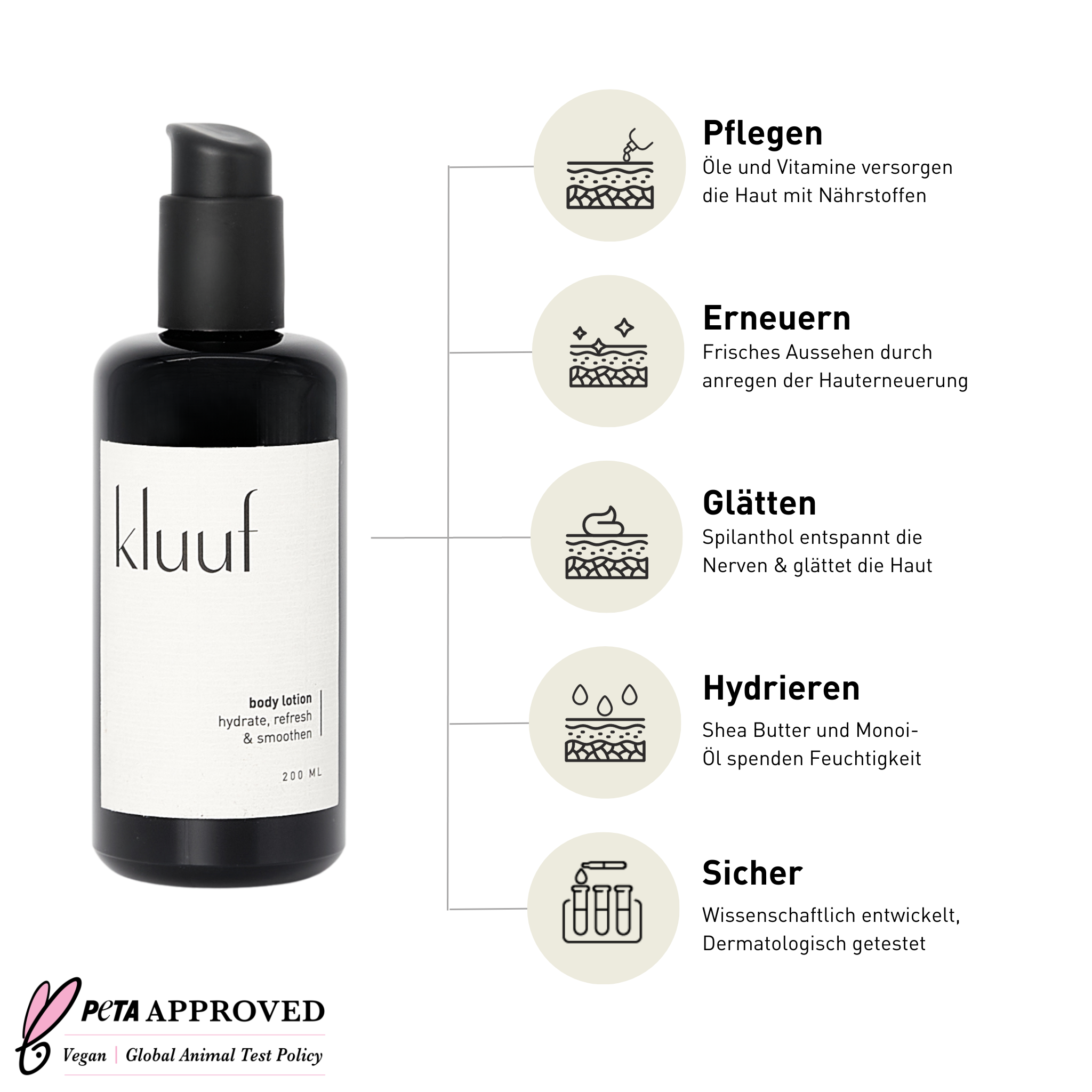Why are there special skin care products for men? Aren't the ingredients in skincare products all the same anyway?
Fact is that skincare for men is on the rise and is no longer a niche. We are seeing more and more unisex and men's skincare products online and on the shelves. Sustainability such as vegan creams & lotions are also being advertised more and more.
These sentiments can also be backed up with figures:
According to the GIK Beauty Report, 64% of all men will have used a face cream in 2023 and as many as 38% will have used a facial cleanser. Both products have recorded strong growth rates in recent years.
In 2023, skincare products for men are so much in focus that Die Zeit published a three-page article with the headline: Skincare for men: CREM. YOU. ONE. was published. However, the author mixes skin care, sun protection and decorative cosmetics. So it still takes a little time for the men's world to reach the same level as women (65% already use a facial cleanser).
So men are interested in skincare and a large proportion already use at least one face cream.
However, this raises the question of why there are special skincare products for men (and women)? Are the requirements of our skin really so different that separate product categories are necessary or is it ultimately all just marketing and money-making?
Male and female skin: Similarities
Let's start by saying this much: by and large, the skin of men and women is much more similar than there are differences. The biggest common denominator here is the structure of the skin, but there are also no major differences in terms of its protective function and function:
- Skin structure: Our skin is divided into three layers: the epidermis, dermis and subcutis. Even if there are minor individual differences here (such as the thickness of the skin layers), the basic structure is the same for men and women.
- Skin renewal: The body's natural cell division causes old skin cells to be shed and replaced by new skin cells. As a result, the skin not only looks healthy (keyword fresh appearance) but above all remains functional. Because the
- protective function of the skin is vital for men and women and works in the same way: the skin not only protects us from external influences such as UV light and bacteria, but also helps the body to regulate its temperature (see here).
One thing remains to be said: The skin of women and men is fundamentally the same. This leaves the question of what differences there are and whether these justify different skincare products.
Male and female skin: Differences
With many similarities, the biggest differences are that male skin is thicker than female skin, has a higher collagen content and the fat content also differs significantly:
- Thickness of skin: male skin is on average 25% thicker than female skin. This structural difference leads to more firmness and resilience in male skin and probably to the fact that female skin is more often described as soft or smooth. Thickness is largely determined by:
- Collagen. Collagen behaves very differently in the genders: women generally have a lower collagen content. In addition, this decreases significantly faster from the menopause onwards than in men. Before that, however, collagen decreases faster in men.
- Fat content: Men have significantly more sebaceous glands (usually twice as many) and pores than women. The increased sebum production means that men often have oilier skin and are more prone to acne than women. Women, on the other hand, tend to have drier skin due to their lower oil content.
It is important to note that the skin is a very individual organ and neither women's nor men's skin should be generalized. This is precisely why there are six classifications: Dry skin, Normal skin, Sensitive skin, Mature skin, Combination skin and Blemished skin.
Special skin care needs of male skin
The two previous sections have established that there are both differences and similarities in the skin. Even if the similarities clearly outweigh the differences, the question arises as to whether the differences, such as fat content or collagen structure, result in different skin care requirements.
- Skin thickness: As men's skin is on average 1/4 thicker than women's, men generally lose less moisture. However, due to its greater mass, the skin also contains more absolute moisture. This is where creams and serums can come into play by both supplying moisture and helping to bind moisture in the skin (e.g. with hyaluronic acid).
- Collagen: Due to a higher collagen content and the slower decrease in collagen, creams for men do not need to place as much emphasis on stimulating the collagen production. Nevertheless, it is important to pay attention to the right care at the respective stage of life, because between the ages of 20 and 40, the collagen content in men decreases significantly faster than in women.
- Oil content: Due to the many sebaceous glands in men's skin, it is advisable for men to use skin care that is not too greasy or oily, as otherwise men run the risk of clogging their skin pores, which can lead to unsightly blackheads, pimples and even acne.
- Shaving: Another need of male skin is not caused by biological differences, but by a typically male behavior: shaving. The average man shaves his facial skin thousands of times in the course of his life. This not only irritates the skin, but also always removes part of the top layer of skin, which weakens the skin's protective mechanism and makes us sensitive. Sustainable skin care products such as an after shave can be used precisely here and promote the regeneration and repair of the skin.
As we mentioned in the introduction, there are usually no gender-specific differences in active ingredients. Hyaluronic acid is hyaluronic acid and niacinamide is niacinamide. Where scientifically formulated skincare products can make a difference, however, is in the conscious use (or non-use) of active ingredients, the concentration of active ingredients (i.e. how much of an ingredient is used) and the conscious omission of some chemical ingredients, as clean beauty does with vegan products.
Skincare for men summarised
We have established that:
2. Subtle differences,such as the collagen structure or oil content exist.
3. These differences can be addressed with gender-specific products, just as dry and oily skin can be addressed with different products.
At this point, we would like to emphasize that we think the raison d'être for men's skincare products is right and important, but what is even more important is that everyone uses the skincare products that work for him or her. Not only because it is important to pay attention to gender-specific care, but also to your own skin type (e.g. combination skin or dry skin).
Your skin is unique and you will notice what is good for you and your skin and what is not. Don't be misled by a label or a marketing message.
Because at the end of the day, caring for your skin with sustainable and scientifically formulated products is much better than not doing so. The cream may not be 100% tailored to you, but ultimately your skin will thank you for caring for and protecting it with high-quality active ingredients.
With this in mind: Enjoy your sustainable skincare.



